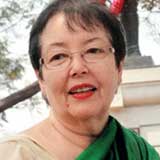My father, as I would like him to be remembered
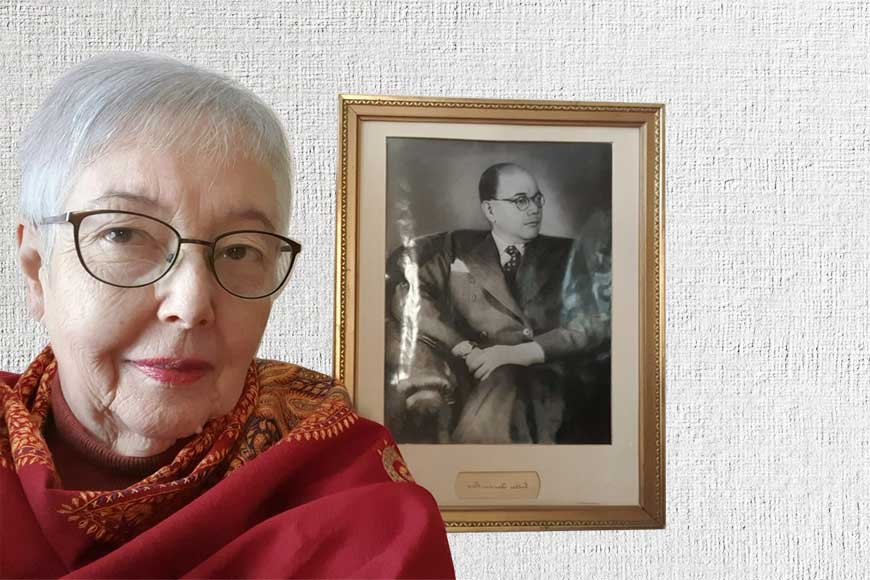
This year marks Netaji Subhas Chandra Bose’s 125th birth anniversary, which everyone knows. It is most gratifying, though in a way surprising, that many of his countrywomen and countrymen not only remember him today as a person of history. But after all these years, he is able to touch them in a very emotional manner. Many respect him, venerate him and even love him. He certainly deserves these sentiments. Yet it is not self-evident that such a bond continues between him and the generations who lived long after he passed on and long after India succeeded in becoming a sovereign state.
During his relatively short lifetime, Netaji sacrificed a great deal for India’s independence: as a devoted teenager, he tended to the cholera sick. As a student leader at Presidency College in Calcutta, he charged the British Professor Oaten with racially insulting Indians, and he condoned, or even participated, in taking him to task physically to emphasize the protest. As a consequence, he was thrown out of college, fortunately as it turned out eventually, only temporarily. He declined an appointment to the Indian Civil Service, which was highly competitive. At the time it guaranteed to successful appointees a coveted, well-paid and respected career. He declined this advantage because he considered the service’s spirit and practice disrespectful to his fellow Indians.
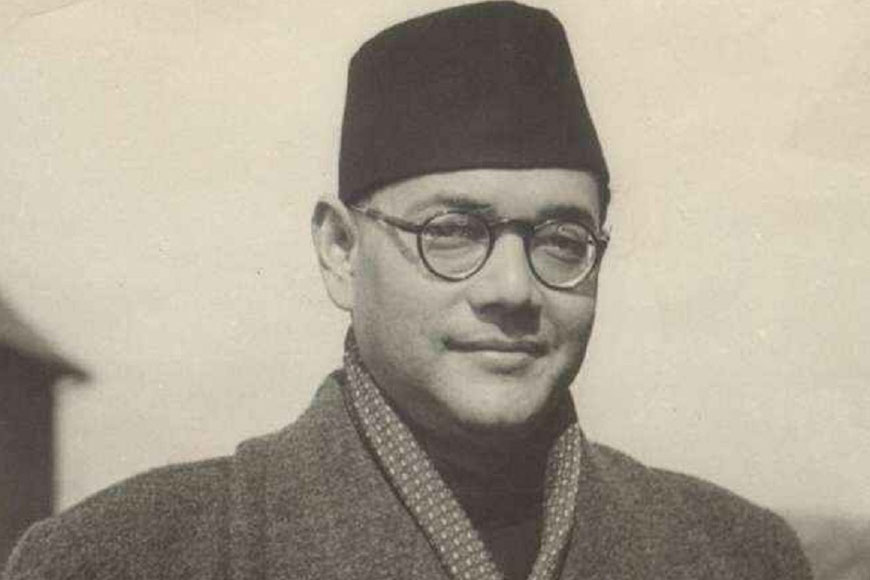
Returning to India, he became an enthusiastic and dedicated leader of the struggle for India’s independence. This led to his repeated imprisonment and consequently to severe health problems. More or less exiled, he could only avail medical treatment in Europe. At the same time, he carried the message of the struggle for India’s independence to many European countries.
Netaji travelled to Kabul, part of the way on foot. From there he continued on to Berlin, Germany, where he could set up an Indian Legion. When the fortunes of war turned against Indian interests in the Western theatre of war, he was offered the very dangerous possibility to reach East Asia by German and Japanese submarines.
Back in India, he was elected Congress President twice, the second time against the wishes and support of Mahatma Gandhi. However, Mahatma Gandhi and the more conservative wing of the Congress successfully forced him to resign as president and to establish a left-wing bloc within the Congress, the Forward Bloc.
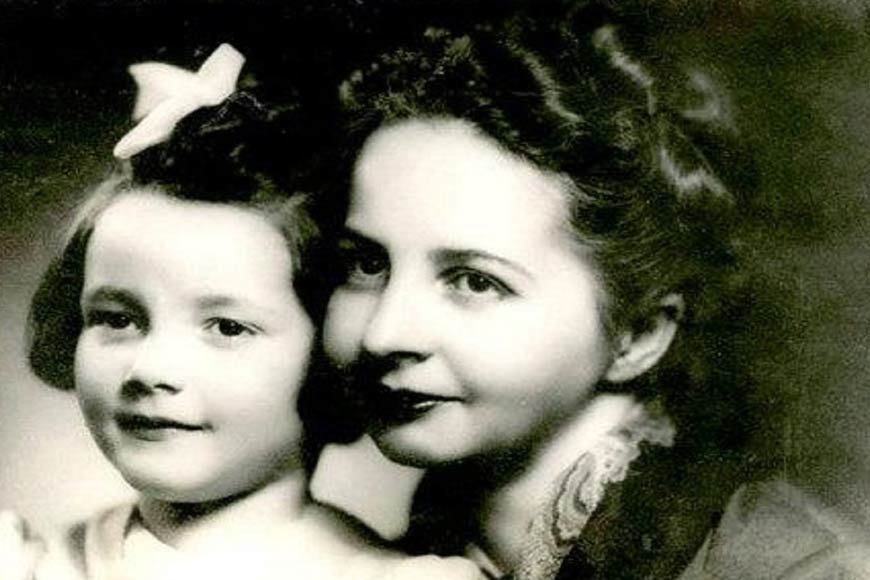
After the beginning of World War II in Europe in 1939, he hoped that Britain’s enemies would support the Indian struggle. So when he, like many other leaders, was imprisoned again in 1940, he decided to attempt to get support for the Independence struggle abroad. In the legendary escape from home internment in disguise, Netaji travelled to Kabul, part of the way on foot. From there he continued on to Berlin, Germany, where he could set up an Indian Legion. When the fortunes of war turned against Indian interests in the Western theatre of war, he was offered the very dangerous possibility to reach East Asia by German and Japanese submarines.
In East Asia, he assumed the command of the Indian National Army (INA) and proclaimed a Provisional Indian Government in exile. With the support of the Japanese army, he led the INA across the Indian border. The monsoon and the fortunes of war led to a military defeat of the INA, however. The capitulation of Japan in August 1945 after the nuclear bombardment of Hiroshima and Nagasaki also forced an end to Indian military actions.
Netaji was a man of vision and integrity. For him, the necessary sacrifice for his country and her population was self-evident. He combined deep religiosity with a tolerance for other creeds. He was deeply rooted in tradition.
Netaji died following a plane crash in Taipei, now the capital of Taiwan. His remains were taken to Japan and placed – as far as the Japanese were concerned temporarily – in the Renkoji Temple in Tokyo.
My father did not live to see his country become independent. If we remember the appalling atrocities that accompanied the partition of the Indian subcontinent, we can only surmise what they would have meant to him. While he was convinced that the struggle for India’s independence could not be carried out through civil disobedience alone, but also with arms, he certainly would have been deeply shocked to see (free) Indians turning against (free) Indians. Could he have prevented any of these crimes? We don’t know.
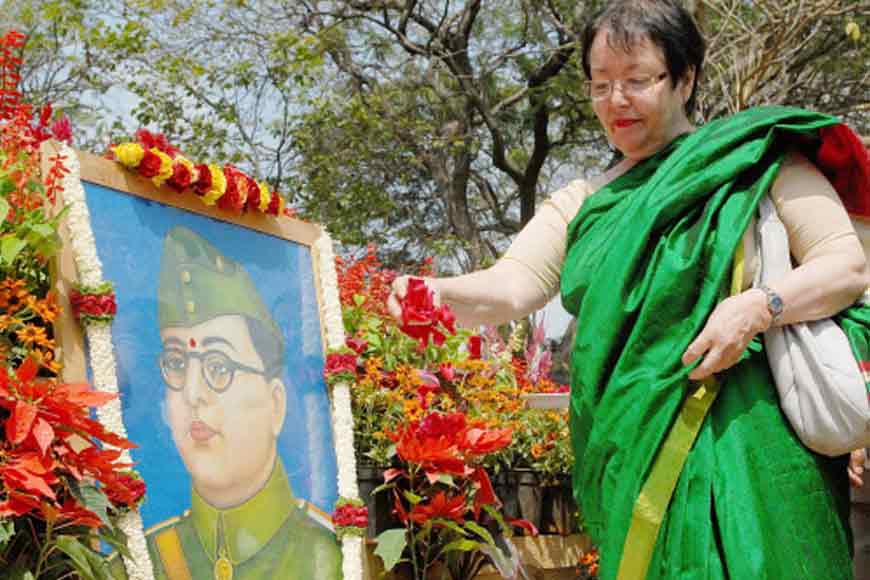
Many Indians had been longing for freedom. Many hoped that they would reap political – and in the case of the INA also a military — success. Most likely many expected that once this was achieved a bright and easier future would lie ahead for their country and their fellowmen and women. Their high hopes may have been over-optimistic, as we recognize in hindsight. And the developments in other parts of the world, of course, were characterized by a similar social and economic “inertia”.
The partition of India was accompanied by a double trauma: The bloodshed that Hindus and Muslims wrought upon each other, on the one hand, and the continuing tension and several wars between the separate states of India and Pakistan, on the other hand. This wasted scarce resources of the countries on armament and wars. And to what extent has India been able to overcome the disadvantages of a rigid caste system? Has India been able to emancipate her “underutilized human resources” that Netaji identified in his political speeches and writings – her downtrodden and women? I believe that in spite of undoubted progress, a lot remains to be done.
During his relatively short lifetime, Netaji sacrificed a great deal for India’s independence: as a devoted teenager, he tended to the cholera sick. As a student leader at Presidency College in Calcutta, he charged the British Professor Oaten with racially insulting Indians, and he condoned, or even participated, in taking him to task physically to emphasize the protest.
From today’s perspective, we know that India has succeeded in many areas. But the absence of poverty and illiteracy could not be achieved miraculously. A challenge has lain ahead for India and continues to lie ahead: not all problems could be overcome magically, once the British rulers agreed to quit India and Indians became the masters and mistresses of their own destiny. Great challenges remain for Indians and for humanity at large. India has succeeded in many walks of life. One may claim that she has an enormous reservoir of brainpower and talent and that a brighter future can be achieved. India prides herself on being the world’s largest – or most populous – democracy. But a large part of her huge and growing population sees no hope to escape poverty.
Also read : Subhas and Emilie: The love that time forgot
Netaji was a man of vision and integrity. For him, the necessary sacrifice for his country and her population was self-evident. He combined deep religiosity with a tolerance for other creeds. He was deeply rooted in tradition. But from that basis he could embrace other cultures and develop his own vision for his country. He was a very modern man who, however, never lost his cultural, religious and psychological anchor.
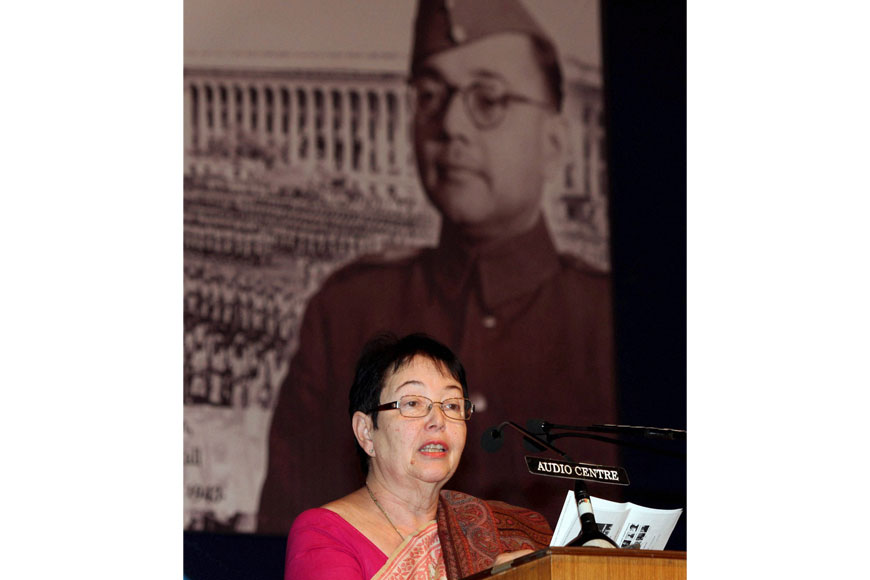
Each era has specific problems, dangers and challenges. Everyone ultimately has to meet them for herself or himself. But some women and men are inspired by the example and lives of others. Even though Netaji lived in another time and had to face other problems than those that face the young of today, he can be a role model in many aspects. His example can provide insights and inspiration. We might deplore that we do not have the ability, the strength, the dedication and the willingness for sacrifice to the extent that he and many other freedom fighters did. We live in another time after all, and we may be lesser human beings. But that certainly should not discourage us to be prepared, to serve, to the extent that we are able, the needs of other individuals and society. The willingness by many to serve will provide for a better community and most likely for more personal satisfaction.
At least three major themes in Netaji’s ideas and actions continue to be relevant for our lives today:
● Netaji and the INA upheld respect for all religions and peaceful coexistence between their followers. India has repeatedly experienced and experiences communal violence wrought by Indians on their countrymen and countrywomen. Let us stand up against this, in word and action
● Netaji was a champion of gender equality and emancipation. India today has the deplorable reputation as the country with one of the highest rates of crime against women. Let us stand up against this, in word and action
● Netaji was opposed to the discrimination of the down-trodden, both members of the lower castes and unskilled workers. Many educated and skilled persons and members of higher castes still look down upon these “down-trodden” of today. An improved educational system should qualify the unskilled and their children for a way out of poverty, ill-health and exploitation. And it should teach members of the higher strata of society that inequality and divisiveness ultimately result in a loss to all. Let us stand up against inequality and divisiveness, in word and action






